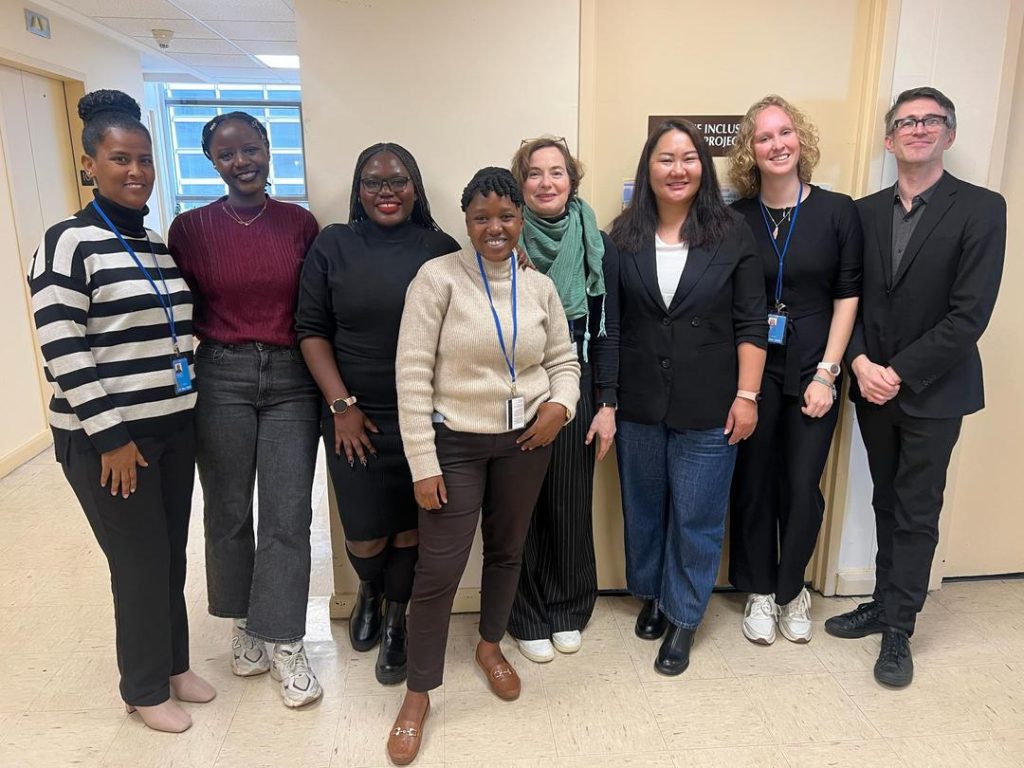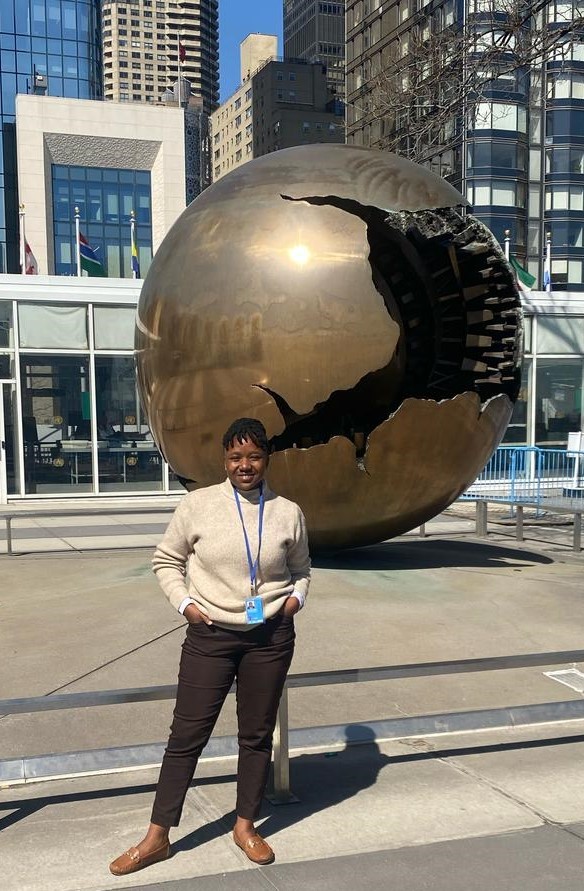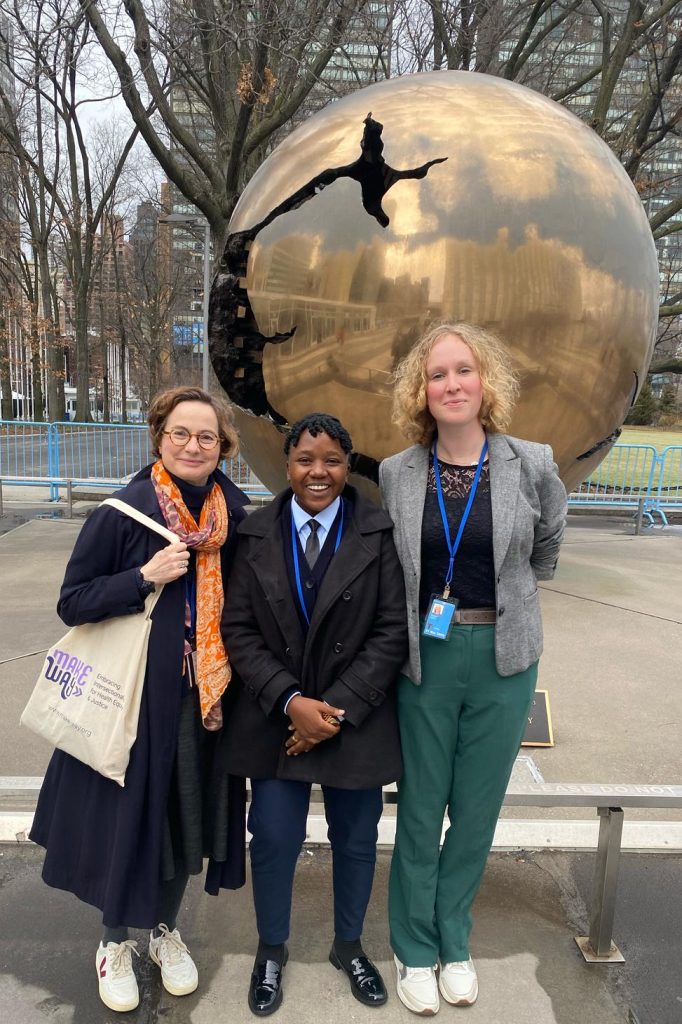SRHR for all: Representing marginalised youth at the NGO CSW
 03 April 2025
03 April 2025

The NGO Committee on the Status of Women (NGO CSW) stands as a beacon of hope, dedicated solely to the advancement of gender equality and the empowerment of women on a global scale. Make Way recently attended the NGO CSW with one of the Make Way Uganda youth representatives, Nakigudde Hannah Margaret. With Hannah currently pursuing her master’s in Women and Gender Studies and as a passionate advocate for LGBTQ+ rights, women and youth empowerment, the NGO CSW was the perfect space for her to further deepen her knowledge and represent youth voices. We sat down with Hannah to learn more about her experiences and key takeaways at the forum, as well as the salience of marginalised youth being given a seat at the table at international conferences.
What is the NGO CSW?
“The NGO CSW is a platform where feminist and women’s rights organisations from all over the world raise their voices to advocate for gender equality, rights and empowerment of all women in their diversities. The forum is held annually in parallel with the United Nation’s Commission on the Status of Women (CSW) at the United Nation’s headquarters in New York. Over two weeks, NGO CSW/NY organizes over 700 events to inform, engage and inspire grassroot efforts and advocacy needed to empower women and girls globally.”
What was your role at the NGO CSW? What did you do?

Nakigudde Hannah Margaret outside the UN.
“I was honored to be a panellist at a side event organised by the Make Way programme to discuss decolonising queerness and disability in the realisation of the Beijing +30 agenda. Alongside other amazing panellists from diverse backgrounds, I shared my views on the colonial roots of homophobia in Uganda, the colonial legacy of the recently passed Anti-Homosexuality Act (2023) in Uganda and my experience as an LGBTQ rights activist since the passing of the law. I also shared my insight on the best ways to decolonise queerness in Africa.
Similarly, I had the opportunity to assist Freedom and Roam Uganda (FARUG), an LBQ womxn’s organisation, of which I am a member, to set up a documentary screening session titled ‘Women’s advocacy for voice and empowerment in Uganda’. The documentary was very inspirational and it exhibited the power of feminist collaboration in the pursuit of gender equality, women empowerment and LGBTQ rights in Uganda.”
What is the link to young people and sexual and reproductive health and rights (SRHR) at the forum?
“Young people from marginalised communities such as LGBTQ youth, those living with HIV/AIDS and youth with disabilities, among others, face significant barriers in accessing SRHR information and services in their different contexts and their needs remain underrepresented in policy conversations and implementation. For this reason, the Make Way programme helps youth from marginalised communities, like myself, to attend and actively participate in the NGO CSW. These youth can then amplify their voices to share their experiences, advocate for their SRHR and take part in the drafting of decisions that directly affect their lives and communities.”
What did you learn? What was your overall experience?

From left to right: Jennifer Bushee (Make Way Programme Coordinator), Nakigudde Hannah Margaret (Make Way Uganda Youth Panellist) and Daphne Visser (Liliane Fonds Advocacy & SRHR Adviser).
“As a panellist in the discussion on decolonising queerness and disability, I gained insight into the intersection of queerness, disability and colonialism. As a junior researcher, the discussions helped me realise the urgency to engage in research and documentation to unravel indigenous queer histories and author African Queer literature to challenge the colonial narratives that fuel homophobia and restrictive laws and policies against LGBTQ Africans.
Engaging with leaders, activists, youth and policy makers from diverse backgrounds gave me a deeper understanding of the challenges and opportunities that lie ahead especially in the current political, social and economic contexts that affect SRHR funding. It also highlighted the critical need to think of more sustainable strategies in SRHR programming in Africa.
I was also delighted to learn about the CSW, UN processes and how they work in achieving rights for women and girls. I was actively involved in discussions on the CSW’s revitalisation in a bid to ensure that it becomes a more efficient and inclusive platform for the advancement of the rights of women, in all their diversities, with a focus on the role of multilateralism.
Ultimately, my overall experience has been empowering and enriching and has enhanced my motivation to continue working towards a future of equitable access to SRHR for all youth. The lessons I learnt and the connections I made will definitely continue to guide my research and advocacy work. A luta continua.”



